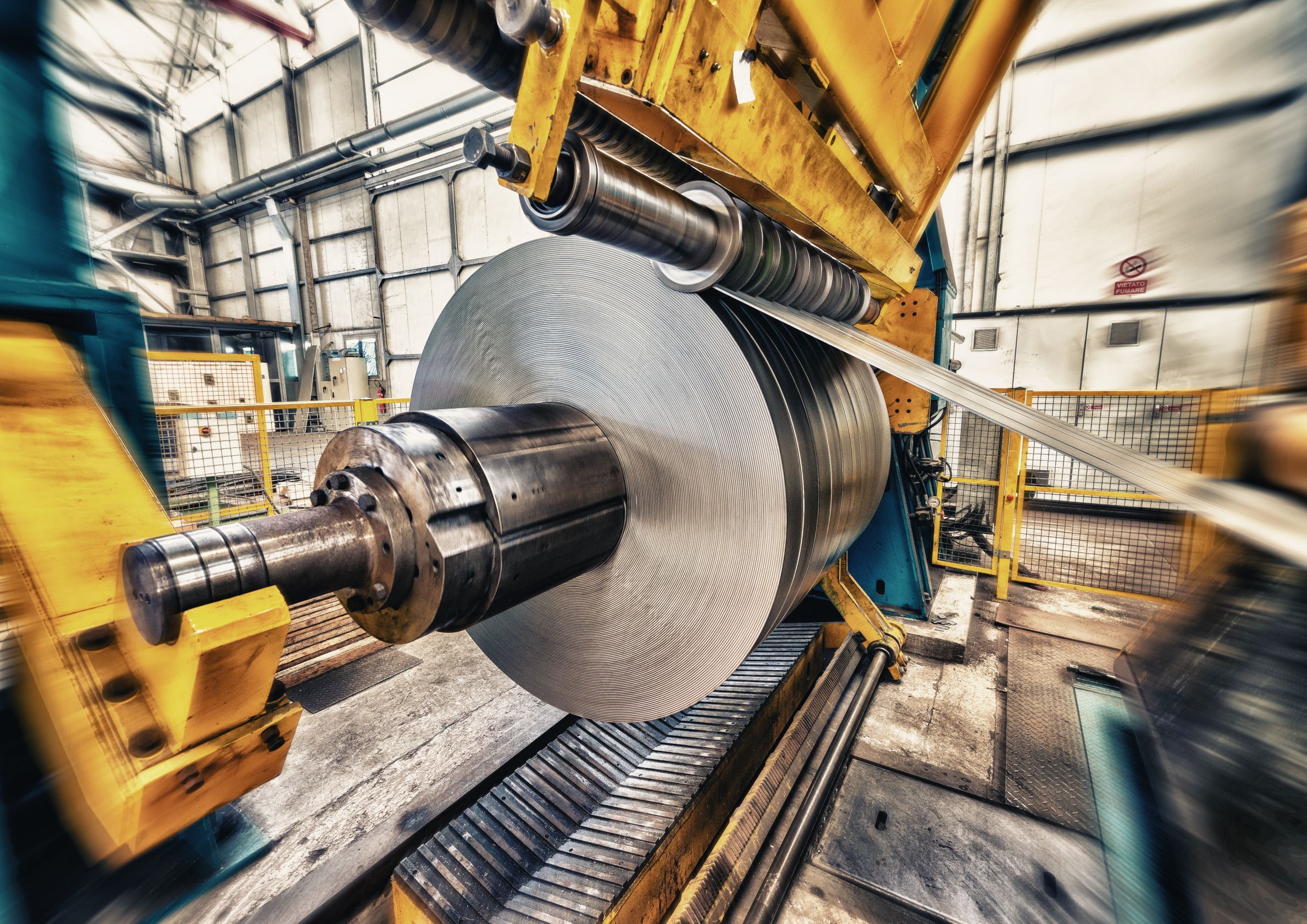Initial Situation
Pickling is a metal surface treatment used by stainless steel manufacturers to remove impurities from steel’s surface and obtain the required optimal surface qualities as part of the production. Pickling with nitric and hydrofluoric acids is the method of choice. Globally more than 350,000 litres of mixtures of this acids are being used for this pickling process every hour and turned in large amounts of waste acid. Disposal of spent acid causes significant environmental problems and endangers today's stainless steel pickling operational licences. Following the successful demonstration of the REGMAX® acid regeneration plant technology in the German pilot plant the next step is to scale the technology from small industrial scale to full industrial scale. Our customer is operating large-scale pickling facilities for flat steel and is using besides nitric and hydrofluoric acids, also sulfuric acid for pickling as well. Since no suitable regeneration technology could be found so far, the acid is sent to a neutralization plant until today.
Co-financing by H2020 - Industrial Leadership Program - Innovation in SMEs
The European Commission recognized SUSTEC as one of Europe’s Top SME Innovators, since the entire new REGMAX® technology is considered as a disruptive technology in the field of pickling acid regeneration technologies. It can eliminate all pains related with stainless steel pickling today and is the first real sustainable solution to the problem of stainless-steel pickling. Therefore, the European Commission supports this project with a grant of its H2020 program. REGMAX® is in line with the mandate to set end-of-waste criteria being introduced by the EC to provide a high level of environmental protection and an environmental and economic benefit. As well as the 7th Environment Action Programme, guiding the European environment policy until 2020 are reasons for the EC to provide the grant. The REGMAX acid regeneration technology directly aligns not only with this program and criteria but also with the EU 2020 Climate Action target to reduce greenhouse gas emissions by 20% by 2020, in comparison to 1990 levels. REGMAX® acid regeneration plants contribute to the reduction of greenhouse gases, since the production of HNO3 and HF is not only energy intensive, but releases climate strongly damaging emissions, like N2O.
Largescale demonstration of the REGMAX® technology
The REGMAX® acid regeneration plant being currently build next to one of the customers pickling lines will be able to turn the entire waste acid produced by this pickling line into fresh resources creating a closed loop of the materials. REGMAX® prevents harmful damage to the local ecosystems by not disposing of waste acids nor contaminated wastewater. The stainless-steel manufacturer’s consumption or disposal of the acids is eliminated, reducing the environmental impact of pickling. Generated metal oxides will be reused for the production of stainless steel and the valuable metals are reused instead of being landfilled. The process also improves the energy efficiency of plants and reduces greenhouse gas emissions, thereby mitigating the effects of climate change. Our customer benefits from:
- A Simple Process: REGMAX® acid regneration plants consists of standard unit operations and equipment typical for the chemical industry. REGMAX® plant is not sensitive towards solid particles in the waste acid and therefore
- Highest Possible Acid Regeneration Rate: REGMAX® acid regeneration technology enables up to 98% regeneration of waste nitric acid and 99% waste hydrofluoric acid emerged through stainless steel pickling. The recovered acids can be recycled and valuable metal oxide by-product is produced.
- Reduced Waste Generation: 100% reduction in waste production of water, lime, iron, chrome and nickel optimizing production of the pickling plant. Elimination of waste acid leads to less dependence on waste management and environmental regulations.
- No Water Consumption: The REGMAX® process removes the need for water input, saving million liters of water per plant and year
- Reduced Operational Costs: Operational costs for acid regeneration are lowered by more than 90% in comparison
- Highest Flexibility for Pickling: Due to total acid regeneration and metals removal, the composition of the pickling solution can be adjusted according to needs without consideration of fresh acid. The pickling process comes first, without limitations.



